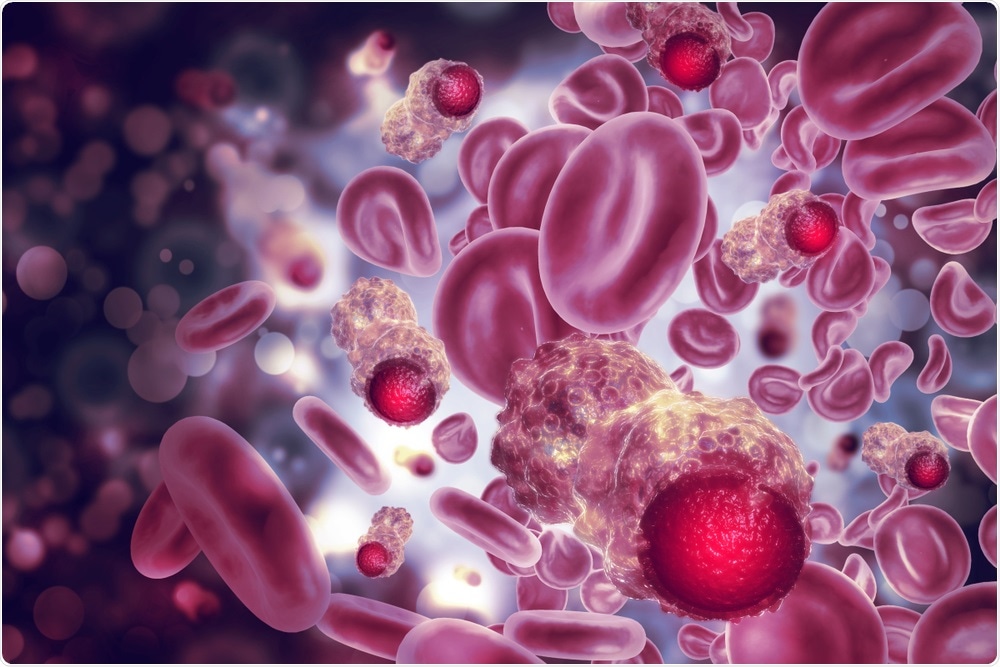In the field of molecular biology, chaperones are a group of proteins that help regulate protein folding. Folding is a significant step in protein synthesis. When proteins do not fold the intended way, they can cause diseases like cancer.

Image Credit: crystal light/Shutterstock.com
At the Sloan Kettering Institute, scientists have made significant discoveries about the reasons behind the malfunctioning of chaperones and also a method to correct them when they go wrong. This finding may offer a novel method for developing targeted medications for cancer and other diseases, such as Alzheimer’s disease.
Our earlier work showed that defects in chaperones could lead to widespread changes in cells, but no one knew exactly how it happened. This paper finally gets into the nuts and bolts of that biochemical mechanism. I think it's a pretty big leap forward.”
Gabriela Chiosis, Study Co-Author, Department of Medicine, Memorial Sloan Kettering Cancer Center
The study was published on June 30th, 2020, in the Cell Reports journal.
How a “good guy” turns bad
The study targeted a chaperone known as GRP94, which plays a vital role in controlling the cells’ response to stress. Cellular stress is a common indication of disease, particularly those associated with aging, like Alzheimer’s disease and cancer. Dr Chiosis has analyzed the role of stress and chaperones in both these medical disorders for several years.
In the latest study, Dr Chiosis and her collaborators observed the changes that occurred in GRP94 in cancer cells, such as cells taken from patients treated for breast cancer at Memorial Sloan Kettering. The team observed that when GRP94 experiences a process, known as glycosylation, wherein a sugar is introduced, it entirely changes the behavior of that chaperone.
It goes from protein that was very floppy and flexible to one that’s very rigid. This one change is enough to convert it from a good guy in the cell to a bad guy. That, in turn, can make the cell behave in a way that’s not normal.”
Gabriela Chiosis, Study Senior Author, Department of Medicine, Memorial Sloan Kettering Cancer Center
Chiosis is also a member of SKI’s Chemical Biology Program
When this change occurs in GRP94, it shifts to a different section of the cell. Generally, GRP94 is detected in the endoplasmic reticulum, in which proteins are produced and undergo the folding process. However, when a sugar molecule is introduced, it shifts to the section of the cell known as the plasma membrane. This results in extensive dysfunction of proteins and a more aggressive form of cancer.
Finding a prototype for future drugs
The scientists have reported in the latest study that they have already discovered a tiny molecule, known as PU-WS13, which acts on GRP94 in the plasma membrane. Such a molecule seems to repair the GRP94 defects, enabling it to behave in a normal manner once again.
The changes that we saw only happen in diseased cells, such as cancer cells or those related to Alzheimer’s. That makes them a good target for therapies because healthy cells are unlikely to be affected.”
Gabriela Chiosis, Study Senior Author, Department of Medicine, Memorial Sloan Kettering Cancer Center
However, according to Dr Chiosis, additional studies are required before a novel drug can be created based on this method.
She added, “PU-WS13 is just a prototype. It has to be tailored for use in humans. We’re investigating how to make this into something that might work as a drug.”
Dr Chiosis and several of her co-authors invented patents that cover PU-WS13 and related science. Dr Chiosis is also a founder of Samus Therapeutics and a member of its board of directors.
Source:
Journal reference:
Yan, P., et al. (2020) Molecular Stressors Engender Protein Connectivity Dysfunction through Aberrant N-Glycosylation of a Chaperone. Cell Reports. doi.org/10.1016/j.celrep.2020.107840.